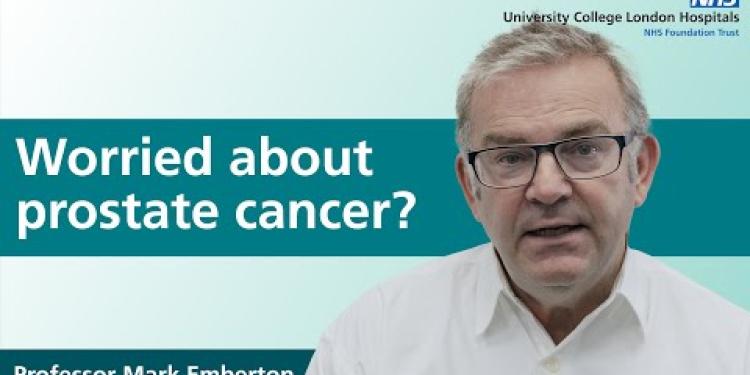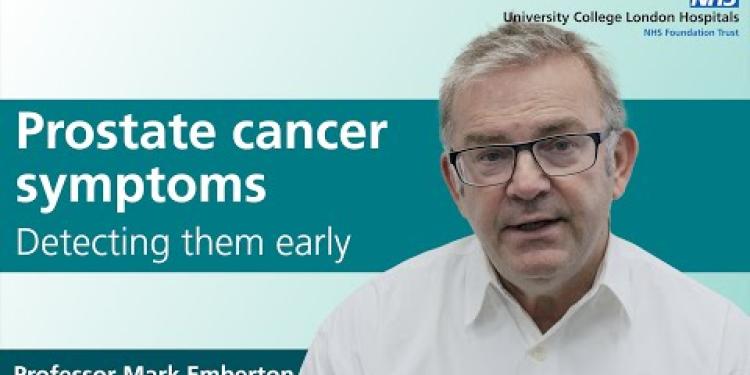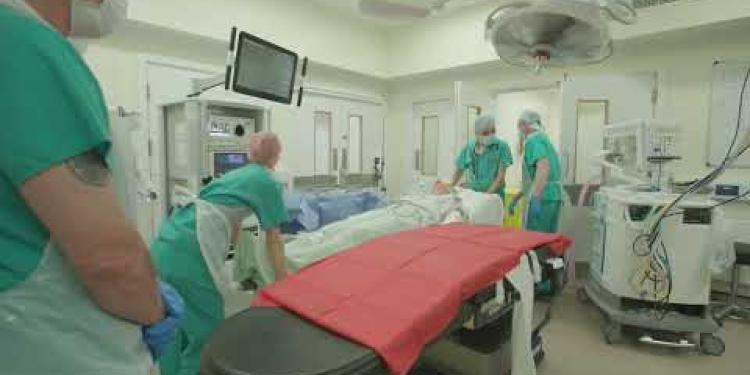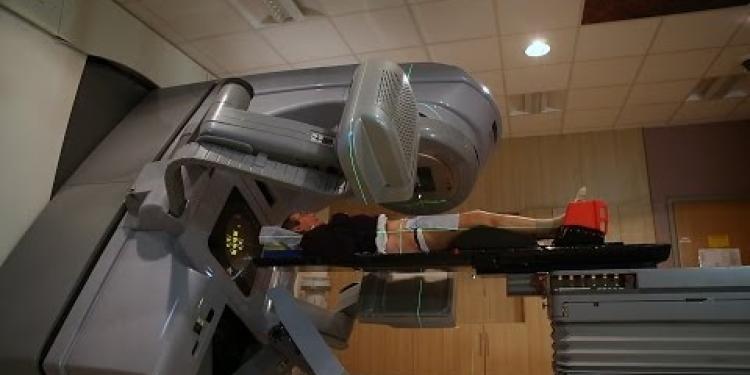Find a supplier in your area
More Videos On This Subjectdiagnosis
Related Videosdiagnosis
What is Prostate Cancer?
Prostate cancer is one of the most common cancers among men globally, including in the United Kingdom. It primarily affects the prostate, a small gland in the male reproductive system responsible for producing seminal fluid. Here's an overview of prostate cancer, including its risk factors, symptoms, diagnosis, and treatment:
1. Risk Factors:
- Age: Prostate cancer risk increases with age, with the majority of cases occurring in men over 50.
- Family History: A family history of prostate cancer can elevate the risk, especially if close relatives were diagnosed at a young age.
- Ethnicity: Some ethnic groups, such as African-Caribbean and African men, have a higher risk.
- Lifestyle Factors: A diet high in saturated fats and low in fruits and vegetables, obesity, and lack of physical activity can contribute to increased risk.
2. Symptoms:
- Early-stage prostate cancer may not present noticeable symptoms.
- As the disease progresses, symptoms can include difficulty urinating, frequent urination (especially at night), weak urine flow, blood in urine or semen, erectile dysfunction, and pain in the lower back, hips, or pelvis.
3. Diagnosis:
- Diagnosis often begins with a blood test for prostate-specific antigen (PSA) levels and a digital rectal examination (DRE).
- If these tests suggest an issue, a biopsy is performed to confirm the presence of cancer.
4. Staging:
- Prostate cancer is staged to determine its extent and aggressiveness, which guides treatment decisions. Stages range from localized (confined to the prostate) to advanced (spread to other organs or distant lymph nodes).
5. Treatment:
- Treatment options depend on the cancer's stage and the patient's overall health.
- Options include active surveillance, surgery (radical prostatectomy), radiation therapy (external beam or brachytherapy), hormone therapy, chemotherapy, immunotherapy, and targeted therapy.
- Treatment decisions often involve weighing the benefits and potential side effects in consultation with healthcare professionals.
6. Prognosis:
- Prostate cancer prognosis varies widely, but many cases are slow-growing and may not require immediate aggressive treatment.
- Early detection and timely intervention significantly improve outcomes, with high survival rates for localized cases.
Prostate cancer is a complex disease with various risk factors and treatment options. Regular screenings and discussions with healthcare providers are essential for early detection and tailored management, ensuring the best possible outcomes for affected individuals.
What is Prostate Cancer?
Prostate cancer is a type of cancer that develops in the prostate, a small gland in males that produces seminal fluid. It is one of the most common types of cancer in men, particularly in older adults. Understanding prostate cancer is crucial for early detection and effective treatment.
Symptoms of Prostate Cancer
In its early stages, prostate cancer often does not cause noticeable symptoms. As it progresses, symptoms may include difficulty urinating, frequent urination (especially at night), weak or interrupted flow of urine, pain or burning during urination, blood in urine or semen, and discomfort in the pelvic area. It is important to consult a healthcare professional if any of these symptoms are experienced.
Risk Factors and Prevention
Several risk factors can increase the likelihood of developing prostate cancer. These include age (most common in men over 50), family history, race (more common in black men), and lifestyle factors such as diet and obesity. While some risk factors like age and genetics cannot be changed, maintaining a healthy diet, regular exercise, and avoiding smoking can help reduce the risks.
Diagnosis and Treatment
Prostate cancer is often diagnosed through screening tests including a prostate-specific antigen (PSA) blood test and a digital rectal exam (DRE). If cancer is suspected, a biopsy may be performed to confirm the diagnosis. Treatment options vary based on the stage and aggressiveness of the cancer and include active surveillance, surgery, radiation therapy, hormone therapy, and chemotherapy.
Living with Prostate Cancer
Being diagnosed with prostate cancer can be challenging, but many men continue to live active, fulfilling lives. Support services, counselling, and patient education programs are available to help manage the physical and emotional aspects of the disease. In the UK, organisations such as Prostate Cancer UK and the NHS provide resources and support for patients and their families.
Early detection and treatment are key to managing prostate cancer effectively. Regular check-ups and awareness of the symptoms can greatly improve outcomes and quality of life for those affected by this condition.
Useful links from: Treating prostate cancer
- NHS - Prostate Cancer Overview This link provides comprehensive information on prostate cancer, including symptoms, diagnosis, treatment options, and living with the condition.
- Prostate Cancer UK Prostate Cancer UK is a leading charity offering support and information on prostate cancer, including treatments, support groups, and research initiatives.
- Macmillan Cancer Support - Prostate Cancer Macmillan Cancer Support provides detailed information on prostate cancer and its treatment, along with support services for patients and their families.
- Cancer Research UK - Prostate Cancer This resource from Cancer Research UK delivers in-depth information about prostate cancer, clinical trials, symptom management, and research advancements.
Useful links from: Prostate cancer diagnosis and tests
- NHS - Prostate cancer Comprehensive overview of prostate cancer, including symptoms, risk factors, diagnosis, and treatment options.
- Prostate Cancer UK - Diagnosis & Tests Details on various tests used to diagnose prostate cancer, such as PSA tests, biopsies, and MRI scans provided by Prostate Cancer UK.
- Cancer Research UK - Prostate cancer tests Information on the different tests and diagnostic procedures for prostate cancer, provided by Cancer Research UK.
- Macmillan Cancer Support - Prostate cancer tests Supportive resource that covers the types of tests used to diagnose prostate cancer, offered by Macmillan Cancer Support.
Useful links from: Living with prostate cancer
- NHS - Prostate Cancer Provides information about prostate cancer symptoms, diagnosis, treatment options, and support services available on the NHS.
- Prostate Cancer UK Offers comprehensive resources on living with prostate cancer, including information on treatments, support groups, and fundraising.
- Macmillan Cancer Support - Prostate Cancer Provides support for people affected by prostate cancer, including medical information, emotional support, and financial advice.
- Cancer Research UK - Prostate Cancer Detailed information on prostate cancer symptoms, causes, treatment options, and research developments.
Useful links from: Why do men get prostate cancer?
- NHS - Prostate Cancer Overview This NHS page provides a comprehensive overview of prostate cancer, including causes, symptoms, diagnosis, treatment, and prevention.
- Prostate Cancer UK - What is Prostate Cancer? Prostate Cancer UK offers detailed information about what prostate cancer is, symptoms, risk factors, and treatment options.
- Macmillan Cancer Support - Prostate Cancer Causes and Risk Factors Macmillan provides information on the causes and risk factors for developing prostate cancer, including genetic and lifestyle factors.
- Cancer Research UK - Prostate Cancer Cancer Research UK covers the causes, symptoms, diagnosis, and treatment of prostate cancer, along with current research and statistics.
Useful links from: Prostate cancer symptoms - detecting them early
- NHS - Prostate Cancer Comprehensive overview of prostate cancer provided by the NHS, including symptoms, diagnosis, and treatment options.
- Prostate Cancer UK - Symptoms Information on prostate cancer symptoms and early detection strategies from Prostate Cancer UK, a leading charity for men affected by prostate cancer.
- Macmillan Cancer Support - Prostate Cancer Supportive information on prostate cancer symptoms, tests, and treatments from Macmillan Cancer Support, a leading UK charity.
- Cancer Research UK - Prostate Cancer Signs and Symptoms Detailed information on the signs and symptoms of prostate cancer, provided by Cancer Research UK.
Useful links from: Hormone Therapy for prostate cancer
- NHS - Hormone Therapy for Prostate Cancer Comprehensive information from the NHS on hormone therapy for prostate cancer, including how it works, who can have it, and what you need to consider.
- Prostate Cancer UK - Hormone Therapy Detailed guide by Prostate Cancer UK on hormone therapy, covering the benefits, side effects, and practical advice for those considering or undergoing treatment.
- Macmillan Cancer Support - Hormone Therapy for Prostate Cancer Macmillan Cancer Support provides an overview of hormone therapy, including what to expect, side effects, and living with hormone therapy.
- Cancer Research UK - Hormone Therapy for Prostate Cancer Cancer Research UK's resource on hormone therapy for prostate cancer, explaining the types of hormone therapy, how it's administered, and managing side effects.
Have you found an error, or do you have a link or some information you would like to share? Please let us know using the form below.
- Ergsy carfully checks the information in the videos we provide here.
- Videos shown by Youtube after a video has completed, have NOT been reviewed by ERGSY.
- To view, click the arrow in centre of video.
- Most of the videos you find here will have subtitles and/or closed captions available.
- You may need to turn these on, and choose your preferred language.
- Go to the video you'd like to watch.
- If closed captions (CC) are available, settings will be visible on the bottom right of the video player.
- To turn on Captions, click settings .
- To turn off Captions, click settings again.











